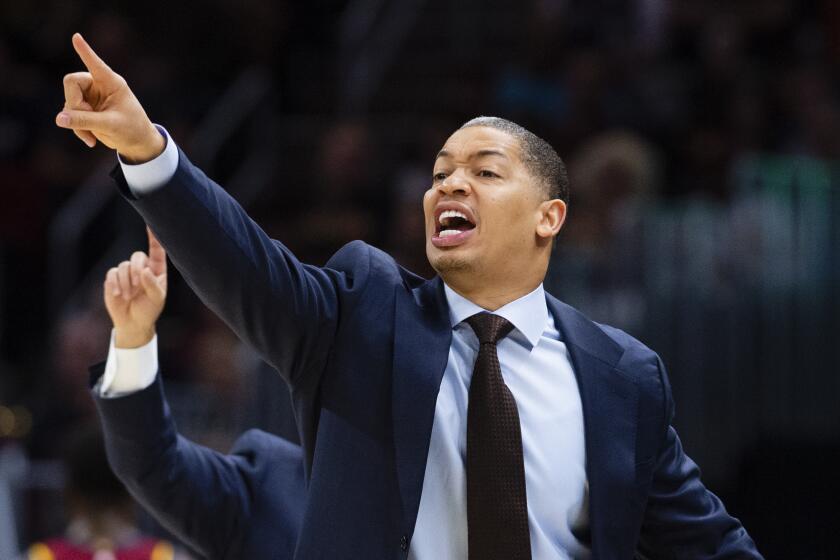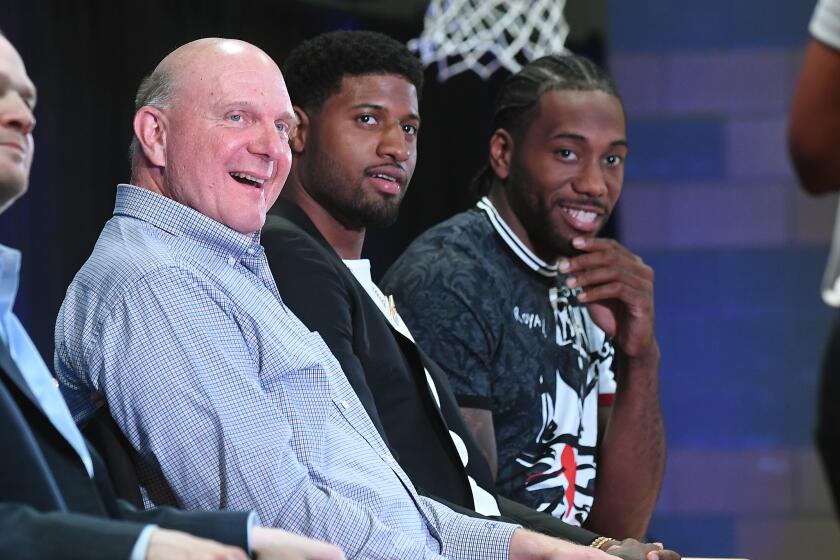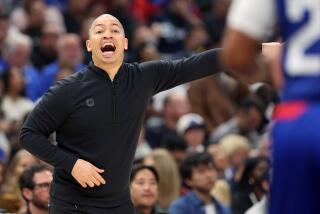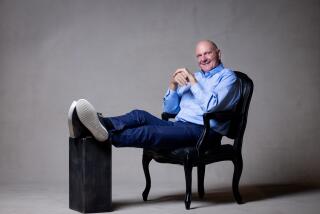Column: Doc Rivers quit — briefly — as Clippers coach after a week on the job
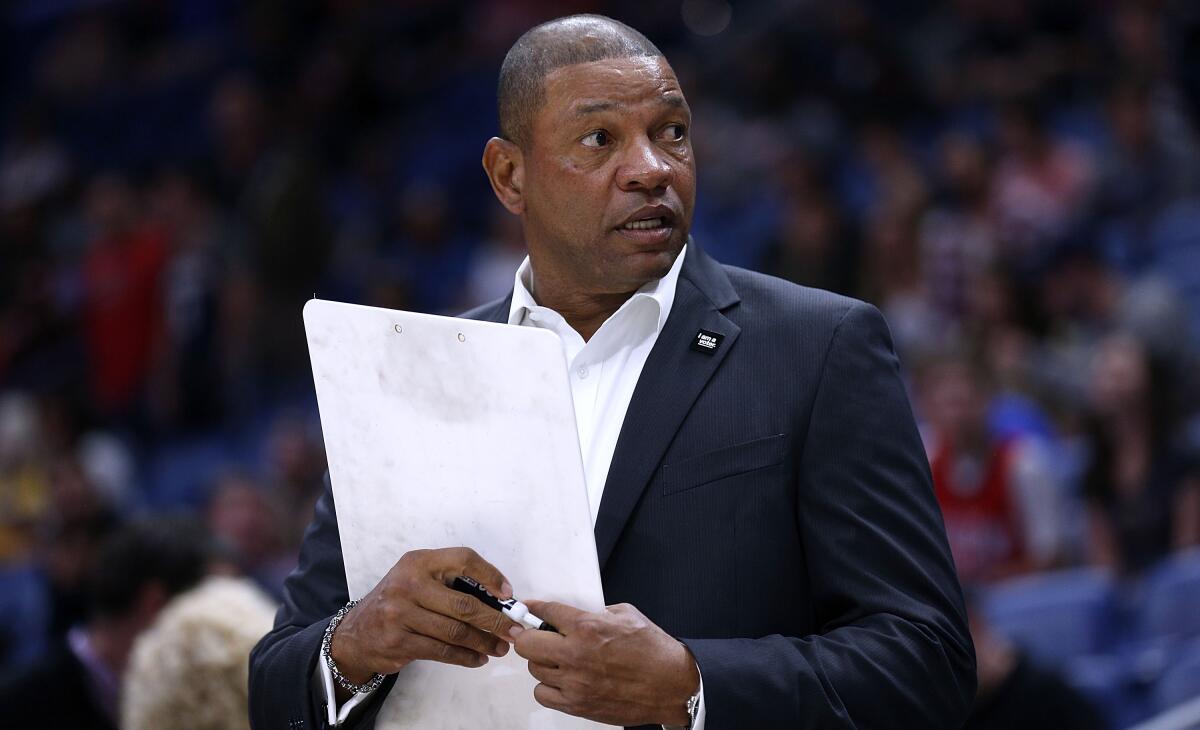
- Share via
The Clippers’ transformation from laughingstock to potential championship contender began before Doc Rivers arrived. The team put together back-to-back winning seasons and won their first division title in 2013 before parting ways with Vinny Del Negro and making a deal with the Boston Celtics to pave the way for Rivers.
Of course, the team had experienced similar short-lived turnarounds even before that. Larry Brown coached the Clippers to back-to-back playoff berths in 1992 and 1993 before abruptly resigning. Elton Brand captained the Clippers in 2006 to their first playoff series win in 30 years before bolting two years later.
Even the “Lob City” Clippers almost became a two-year blip — torpedoed by then-owner Donald Sterling before he (briefly) came to his senses.
Rivers nearly became the shortest-tenured head coach in team history after Sterling decided to nix a three-team deal to bring JJ Redick to the Clippers in 2013.
An overview of Tyronn Lue and the other new additions to the Los Angeles Clippers’ coaching staff.
“I was on the job for six days and I quit,” Rivers said. “The deal went through and everyone said it was a great deal. I flew back home to Orlando for a couple of days and I got a call from [former Clippers president] Andy Roeser saying Donald Sterling decided he didn’t want to do the deal. I said, ‘What do you mean? The deal is already done. JJ is a free agent. He backed out of a deal to sign with us. If we don’t do this deal we’ll never get another free agent. It’s our word.’”
Redick had been acquired from the Milwaukee Bucks in a sign-and-trade after agreeing to a four-year, $27-million deal with the Clippers. Redick turned down similar offers from teams that were no longer available. Rivers, who was also the vice president of basketball operations for the Clippers, thought he had ultimate authority over the roster.
“I got on the phone with Donald and he was telling me how great his word was,” Rivers said. … “I was in the airport parking lot screaming, ‘No, no, no, no! You’re not going to do this! This is my reputation!’ He just went on and on about his reputation and how great it was.
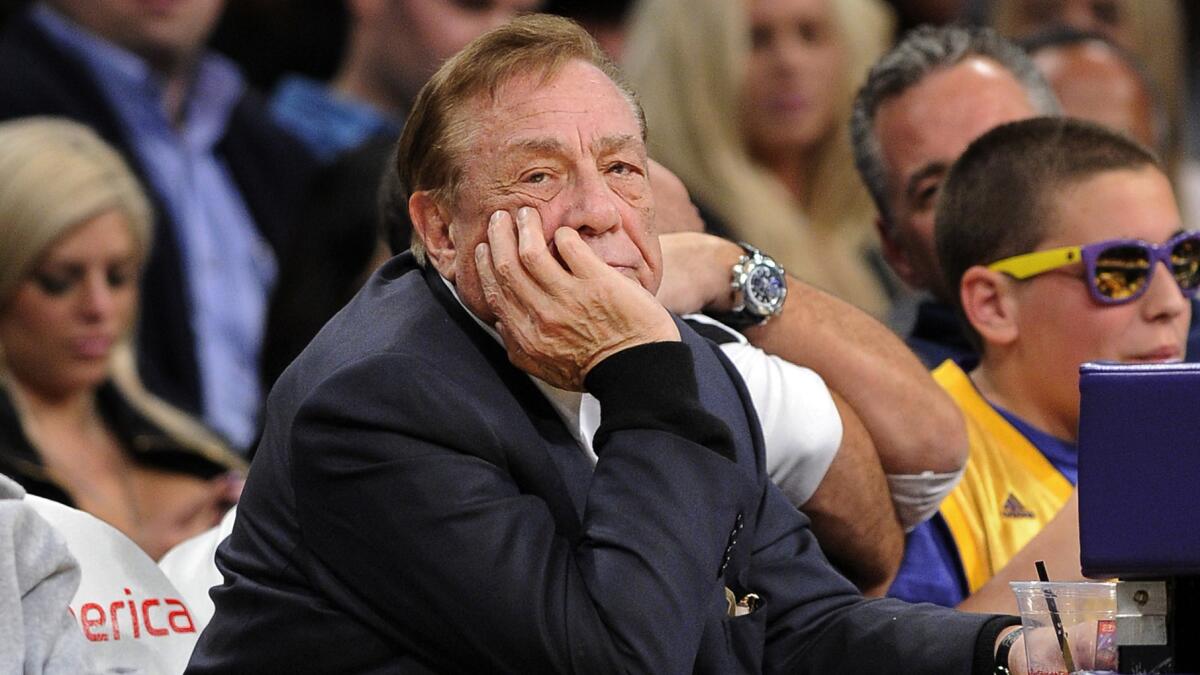
“Finally at the end of it I said, ‘If you don’t do the trade, I quit.’ He said, ‘You can’t quit, you signed a five-year deal, I’ll make sure you don’t coach anywhere!’ I said, ‘I’m fine with that. I’ll find a job. I’ll do something, but I’m not going to do this. I gave the guy my word. I shook his hand.”
The next morning, Roeser told Rivers the deal was done. “I still have no idea what happened,” Rivers said. “I guess Donald just changed his mind, but I had quit.”
(An attempt to reach Sterling through his attorney for a response failed.)
The close call with Redick highlights just how precarious any success was with Sterling still at the helm. The Clippers were always one phone call or recorded conversation away from everything imploding.
“I thought I needed a change when I left Boston, and I thought going to the Clippers was the right thing to do, and I knew within three days I made a mistake,” Rivers said. “From the meetings with the organization to the attitude in the organization, they literally thought I was the devil. I remember the first meeting vividly. People were saying they’ve been there for 15 years or 20 years and I’m sitting there and I say, ‘No offense, this has been the worst organization in basketball for the last 20 years, why the [expletive] are we celebrating this?’ I’m just being honest. I’m not impressed by anyone who thinks longevity is good unless it’s successful longevity. The room got quiet and I knew I had made a lot of enemies, but I was good with that.”
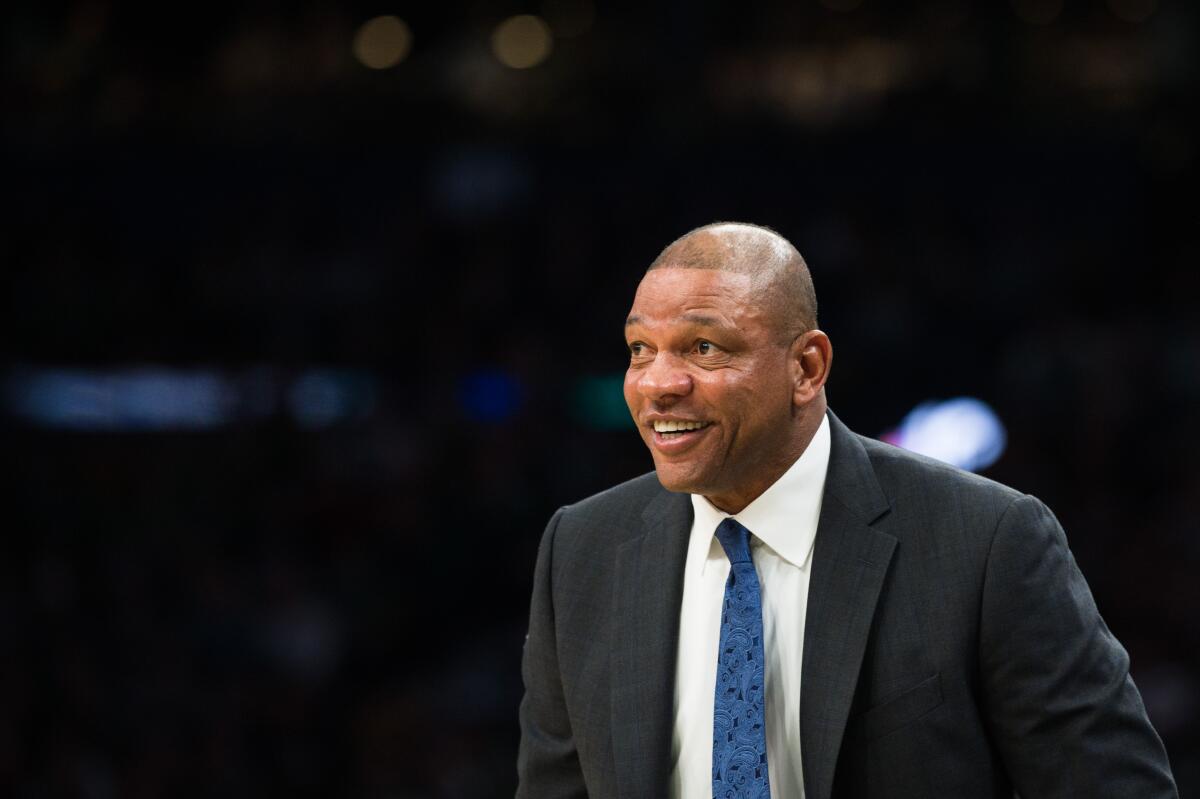
The Clippers went from a team in quicksand under Sterling to a model franchise after Steve Ballmer purchased the team for $2 billion five years ago. They won the NBA off-season this summer when they acquired Kawhi Leonard and Paul George, two local products who spurned the Lakers — George last year, Leonard this time.
Ballmer, Rivers said, has “been phenomenal to work with. He’s got more energy than anybody needs. After Kawhi signed, we had this meeting and Ballmer walks in punching the air and making all these sounds and Kawhi, who doesn’t say much, leans over and says, ‘That man has too much energy.’”
One of the first things Rivers wanted the Clippers to do when he joined the organization was to try to separate from the Lakers. He wanted the Lakers’ championship banners and retired jerseys hanging in Staples Center to be covered with pictures of Clippers players during Clippers games.
While Steve Ballmer and Jerry West were part of the Clippers’ year-long strategy to land Kawhi Leonard, Doc Rivers says one ‘hero’ played a decisive role.
“The response I got was ridiculous,” he recalled. “They told me, ‘We can’t do that, they would be mad at us.’ That was their response, and I said, ‘OK, so? They’re the opponent. The opponent should never be happy with you.’ It was amazing.”
It’s one of many reasons why Rivers believes it’s imperative that the Clippers break ground on a proposed $1-billion arena in Inglewood, which is slated to open in 2024 when the Clippers’ lease at Staples Center expires.
“The arena is a must,” Rivers said. “We’re the third tenant in our arena. … We have one stretch this season where we go on the road for five games, come back for one, and are back on the road for five. No one else does that. Just in that alone, we need the separation.”
Rivers and Ballmer want to build a fan base here in a city they realize will long be viewed as a Lakers town no matter what they do.
“We are not going to take away the Lakers fans,” Rivers said. “Their fans are not going to wake up one morning and decide to be Clippers fans. That is never going to happen, but that’s OK.
“There’s enough people in L.A. Let’s just keep our fans and attract new fans. … We’re always going to be the second child, but the second child can win titles.”
More to Read
Get our high school sports newsletter
Prep Rally is devoted to the SoCal high school sports experience, bringing you scores, stories and a behind-the-scenes look at what makes prep sports so popular.
You may occasionally receive promotional content from the Los Angeles Times.
